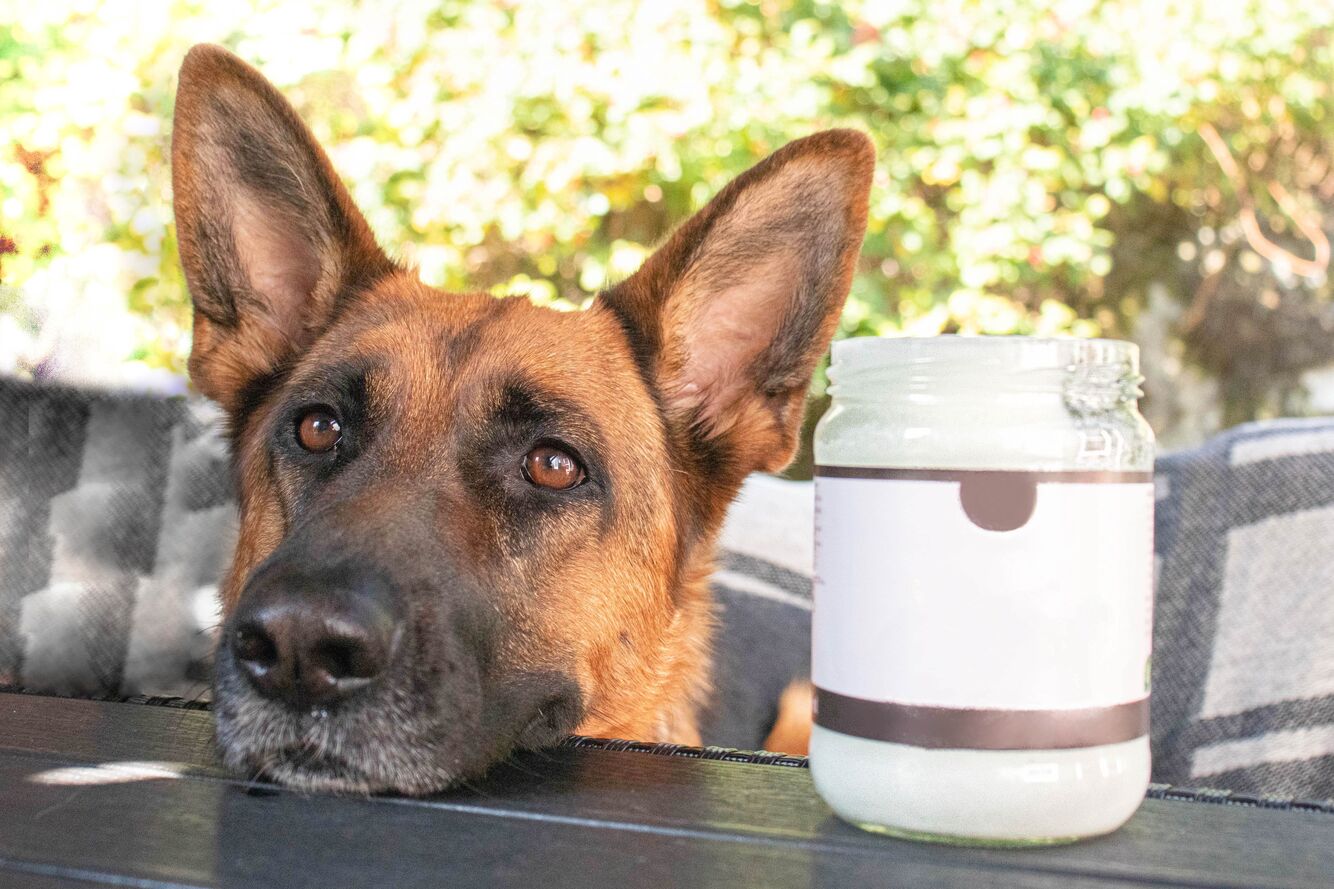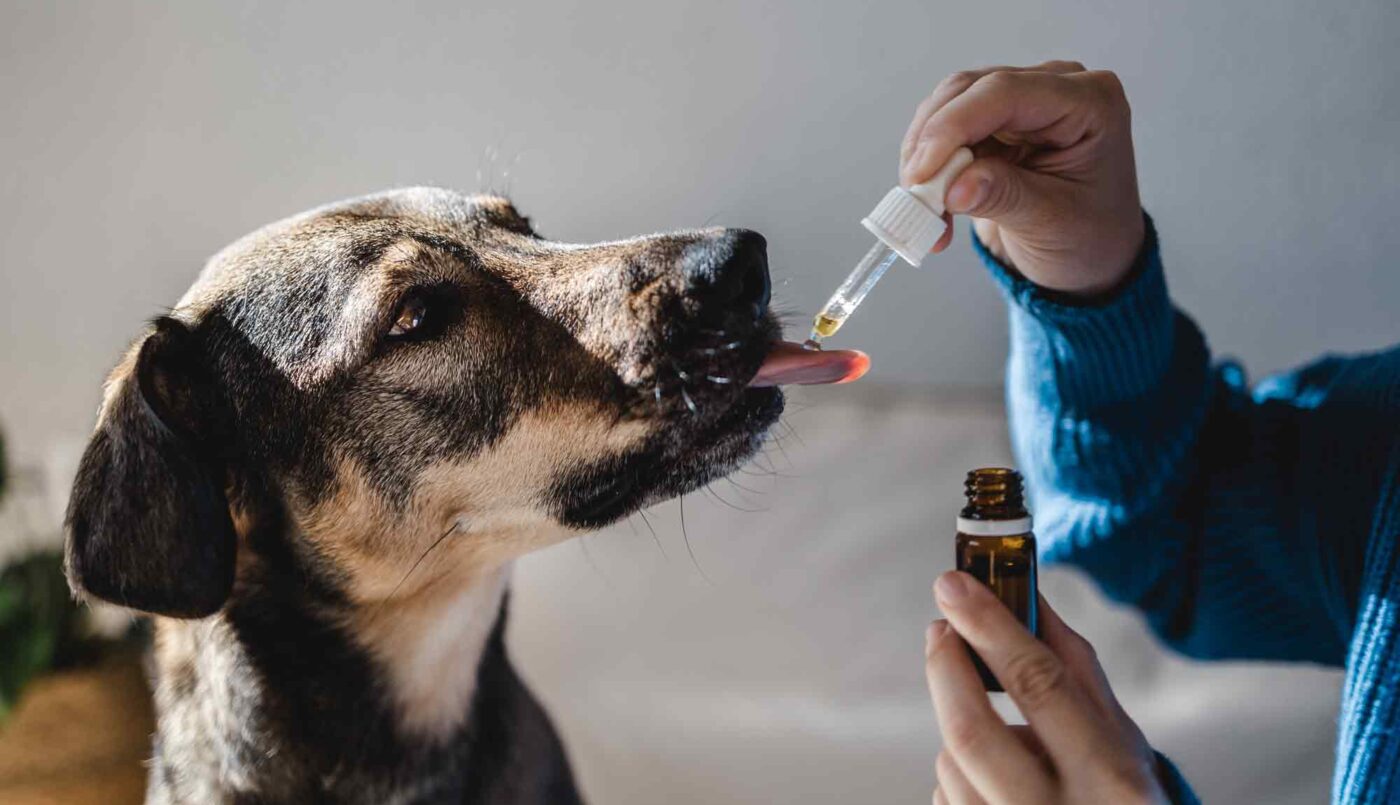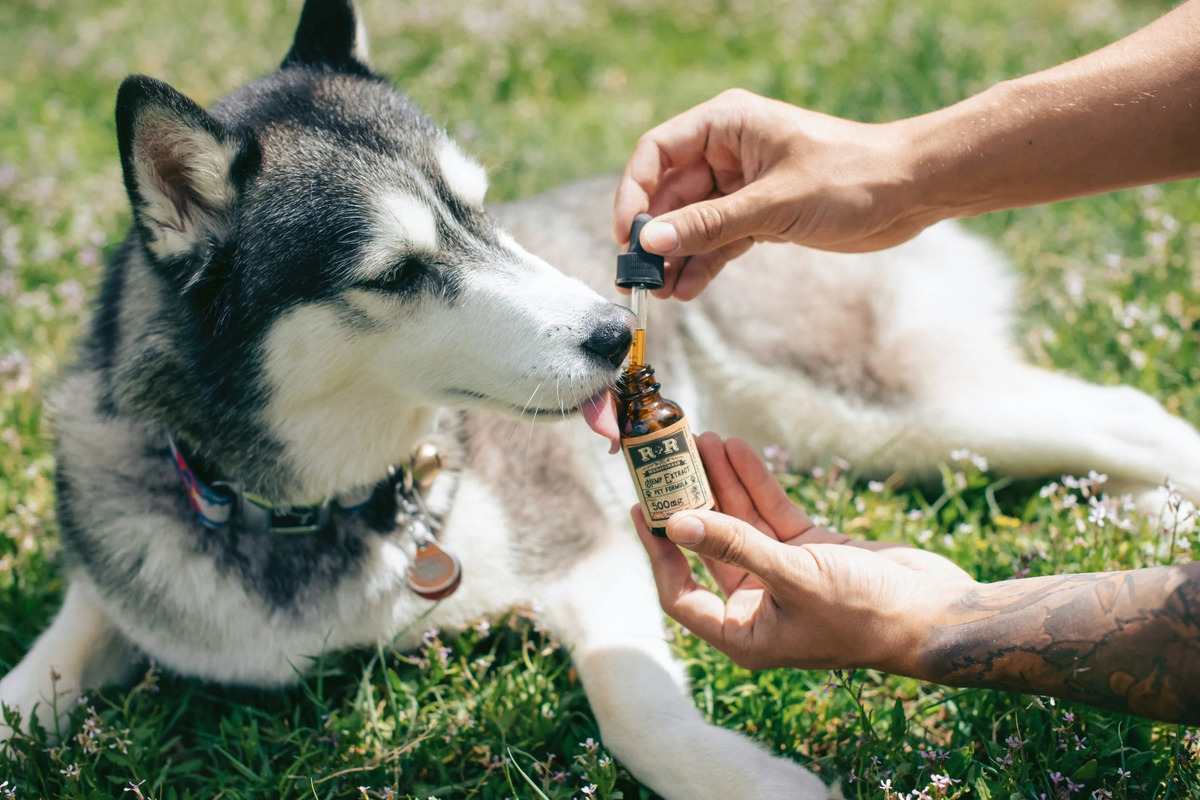Home>Health & Wellness>Nutrition & Diet>How To Incorporate Coconut Oil Into My Dog’s Diet


Nutrition & Diet
How To Incorporate Coconut Oil Into My Dog’s Diet
Published: January 28, 2024
Discover the benefits of adding coconut oil to your dog's diet. Learn how to incorporate this nutritious ingredient for optimal nutrition and diet.
(Many of the links in this article redirect to a specific reviewed product. Your purchase of these products through affiliate links helps to generate commission for Pawsomeoldies.com, at no extra cost. Learn more)
Table of Contents
Introduction
Coconut oil has gained popularity as a versatile and beneficial supplement for dogs. As a loving pet owner, you may be curious about how to incorporate this natural product into your dog's diet to promote their overall well-being. Whether your furry friend is a playful pup or a wise senior, coconut oil can offer a range of health benefits, from supporting their skin and coat to aiding their digestion and immune system.
In this comprehensive guide, we will explore the various ways to introduce coconut oil into your dog's diet, ensuring that you can make informed decisions about their nutrition and well-being. From understanding the specific advantages of coconut oil for dogs to selecting the right type of coconut oil and incorporating it into their meals, this article will provide you with valuable insights and practical tips to enhance your dog's health.
By incorporating coconut oil into your dog's diet, you can take proactive steps to support their vitality and longevity. Let's delve into the world of coconut oil for dogs and discover how this natural supplement can become a valuable addition to your pet care routine.
Benefits of Coconut Oil for Dogs
Coconut oil offers a myriad of benefits for our canine companions, making it a valuable addition to their diet. Here are some of the key advantages:
1. Promotes Healthy Skin and Coat
Coconut oil is rich in lauric acid, which possesses natural moisturizing properties. When incorporated into a dog's diet, it can help alleviate dry, itchy skin and promote a lustrous, healthy coat. The oil's antimicrobial properties also aid in preventing skin infections and irritations.
2. Supports Digestive Health
The medium-chain triglycerides (MCTs) found in coconut oil can aid in digestion and nutrient absorption. By incorporating coconut oil into your dog's diet, you can potentially alleviate digestive issues and support their overall gastrointestinal health.
3. Boosts Immune System
The lauric acid in coconut oil has been shown to have antimicrobial and antiviral properties, which can help bolster your dog's immune system. By regularly consuming coconut oil, your dog may be better equipped to fend off common infections and maintain optimal health.
4. Aids Weight Management
Despite being a fat, the MCTs in coconut oil are metabolized differently than long-chain fatty acids, potentially aiding in weight management. When used in moderation, coconut oil can provide a source of energy while supporting a healthy weight in dogs.
5. Supports Joint Health
The anti-inflammatory properties of coconut oil may benefit dogs with arthritis or joint pain. By incorporating coconut oil into their diet, you may help reduce inflammation and alleviate discomfort, contributing to improved mobility and overall comfort.
6. Cognitive Benefits
The MCTs in coconut oil have been linked to potential cognitive benefits in dogs. Regular consumption may support brain function and cognitive health, particularly in aging dogs.
Incorporating coconut oil into your dog's diet can offer a range of health benefits, contributing to their overall well-being and vitality. However, it's important to introduce coconut oil gradually and in moderation, ensuring that it complements your dog's existing diet and lifestyle.
How to Choose the Right Coconut Oil for Your Dog
When selecting coconut oil for your dog, it's essential to consider several factors to ensure that you choose a high-quality product that aligns with your pet's specific needs. Here's a comprehensive guide to help you make an informed decision:
-
Opt for Organic, Unrefined Coconut Oil: Look for organic, unrefined coconut oil to ensure that it is free from pesticides, chemicals, and additives. Unrefined coconut oil retains its natural nutrients and beneficial properties, making it a healthier choice for your dog.
-
Consider Cold-Pressed Coconut Oil: Cold-pressed coconut oil is extracted without the use of heat or chemicals, preserving its nutritional value. This gentle extraction method ensures that the oil maintains its beneficial compounds, making it a suitable option for your dog's diet.
-
Choose Virgin Coconut Oil: Virgin coconut oil is derived from fresh coconut meat, offering a purer and more natural form of the oil. It undergoes minimal processing, retaining its rich aroma and flavor, along with its nutritional benefits. This type of coconut oil is well-suited for dogs and can be easily incorporated into their meals.
-
Ensure It's Safe for Canine Consumption: Verify that the coconut oil you choose is specifically labeled as safe for canine consumption. While coconut oil is generally safe for dogs, it's important to select a product that is explicitly intended for pet use to avoid any potential additives or ingredients that may be harmful to your furry friend.
-
Check for Transparency and Quality: Prioritize brands that are transparent about their sourcing and production processes. Look for reputable manufacturers that adhere to high-quality standards and provide clear information about the origin and production of their coconut oil. This transparency can give you confidence in the product's quality and safety for your dog.
By considering these factors, you can select a premium coconut oil that is well-suited for your dog's dietary needs and contributes to their overall health and well-being. Incorporating high-quality coconut oil into your dog's diet can be a valuable way to support their vitality and ensure that they receive the numerous benefits this natural supplement has to offer.
Ways to Incorporate Coconut Oil into Your Dog's Diet
-
Mixing with Food: One of the simplest ways to incorporate coconut oil into your dog's diet is by mixing it with their regular food. Start with a small amount, such as a teaspoon for smaller dogs or a tablespoon for larger breeds, and gradually increase the serving size as your dog becomes accustomed to it. Drizzling melted coconut oil over dry kibble or mixing it with wet food can make it more palatable for your furry friend.
-
Homemade Dog Treats: Another creative way to introduce coconut oil into your dog's diet is by using it in homemade treats. You can incorporate coconut oil into recipes for dog-friendly biscuits, frozen treats, or pupcakes. Not only does this allow you to control the ingredients, but it also provides a tasty and enjoyable way for your dog to consume coconut oil.
-
Coat Application: In addition to internal consumption, coconut oil can be applied topically to your dog's coat and skin. This can be particularly beneficial for dogs with dry or flaky skin. By gently massaging a small amount of coconut oil into their fur, you can help moisturize their skin and promote a healthy, shiny coat. However, it's important to monitor your dog to prevent excessive licking, especially if they have a tendency to groom themselves frequently.
-
Frozen Delights: During warmer months, consider creating frozen treats infused with coconut oil for your dog. You can mix coconut oil with other dog-friendly ingredients such as pureed fruits, yogurt, or peanut butter, and freeze the mixture in ice cube trays or silicone molds. These refreshing treats not only provide a cooling snack but also offer the benefits of coconut oil in a fun and engaging form.
-
Supplement Capsules: For pet owners seeking a convenient and mess-free option, coconut oil is available in capsule form. These capsules can be administered directly or hidden within your dog's food. This method ensures precise dosing and can be particularly useful for dogs who may be hesitant to consume coconut oil directly.
Incorporating coconut oil into your dog's diet can be a rewarding way to enhance their overall health and well-being. By exploring these diverse methods, you can find the most suitable and enjoyable approach for your canine companion, ensuring that they can reap the numerous benefits of this natural supplement.
Precautions and Considerations
When incorporating coconut oil into your dog's diet, it's essential to exercise caution and consider certain factors to ensure the well-being of your furry companion. While coconut oil offers numerous benefits, it's important to be mindful of potential precautions and considerations to make informed decisions about its usage for your dog.
Gradual Introduction
Introducing coconut oil to your dog's diet should be done gradually. Sudden changes in diet can lead to digestive upset, and coconut oil is no exception. Start with small amounts and observe how your dog responds. This gradual approach allows their system to adjust to the new addition and minimizes the risk of gastrointestinal issues.
Portion Control
While coconut oil can be beneficial, it's crucial to practice moderation. Excessive consumption of any oil, including coconut oil, can lead to weight gain and digestive disturbances. Be mindful of the recommended serving sizes based on your dog's weight, and avoid overfeeding to prevent potential adverse effects.
Read more: How To Incorporate Fiber Into A Dog’s Diet
Monitoring for Allergies
As with any new dietary addition, it's important to monitor your dog for potential allergic reactions. While coconut allergies are rare in dogs, they can still occur. Watch for signs of allergic responses such as itching, redness, or gastrointestinal distress. If any concerning symptoms arise, discontinue the use of coconut oil and consult your veterinarian.
Consider Your Dog's Health Status
Before incorporating coconut oil into your dog's diet, consider their overall health status. If your dog has underlying health conditions, particularly related to the liver or pancreas, it's advisable to consult with your veterinarian. Certain health issues may require dietary restrictions or specific considerations, and professional guidance can ensure that coconut oil is suitable for your dog's individual needs.
Weight and Caloric Considerations
Coconut oil is calorie-dense, and its addition to your dog's diet should be accounted for in their overall caloric intake. If your dog is on a weight management plan or has specific dietary requirements, it's important to factor in the calories from coconut oil to maintain a balanced diet. Adjust the portions of other food accordingly to accommodate the additional calories from coconut oil.
Interaction with Medications
If your dog is on any medications or supplements, it's advisable to consult your veterinarian before introducing coconut oil. While coconut oil is generally safe, it's essential to ensure that it doesn't interact with any existing medications or compromise their efficacy. Your veterinarian can provide personalized advice based on your dog's specific health needs.
By considering these precautions and considerations, you can responsibly incorporate coconut oil into your dog's diet, ensuring that it complements their overall health and well-being. Being mindful of these factors allows you to harness the benefits of coconut oil while prioritizing your dog's safety and dietary requirements.
Read more: How To Feed My Dog A Ketogenic Diet
Conclusion
In conclusion, incorporating coconut oil into your dog's diet can be a rewarding and beneficial endeavor, offering a natural and versatile way to support their overall health and well-being. From promoting healthy skin and coat to aiding digestion and bolstering the immune system, coconut oil presents a range of advantages for our beloved canine companions.
By selecting high-quality, organic, unrefined coconut oil and introducing it gradually and in moderation, pet owners can provide their dogs with a valuable nutritional supplement. Whether mixed with food, used in homemade treats, or applied topically, coconut oil offers diverse and enjoyable ways to enhance your dog's diet and lifestyle.
However, it's crucial to consider precautions such as gradual introduction, portion control, monitoring for allergies, and consulting with a veterinarian, especially if your dog has specific health considerations or is on medication. These measures ensure that the incorporation of coconut oil aligns with your dog's individual needs and dietary requirements.
Ultimately, by embracing the benefits of coconut oil and implementing it thoughtfully into your dog's diet, you can take proactive steps to support their vitality, comfort, and longevity. As responsible pet owners, it's essential to prioritize our dogs' well-being and make informed decisions about their nutrition and care. With the right approach, coconut oil can become a valuable and enjoyable addition to your dog's daily routine, contributing to their overall health and happiness.
In the journey of pet care, the incorporation of natural supplements such as coconut oil reflects our commitment to providing the best possible quality of life for our furry friends. By nurturing their health and happiness, we strengthen the special bond we share with our dogs, fostering a relationship built on love, care, and well-being.











